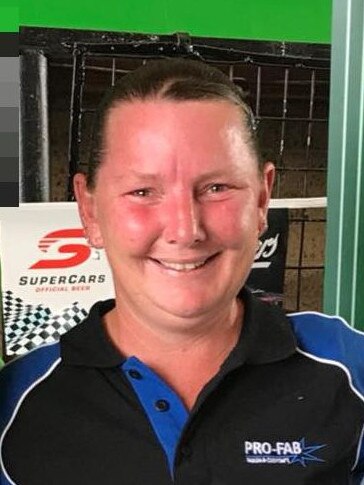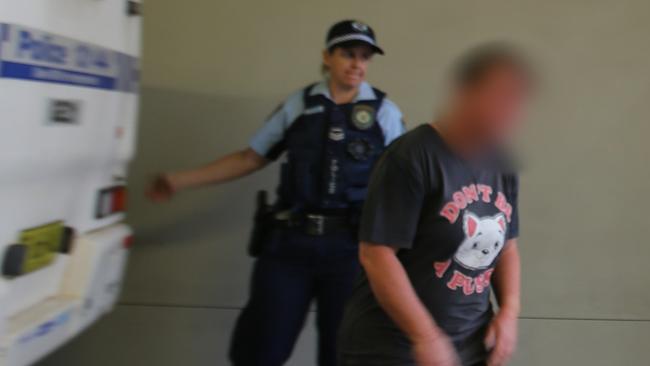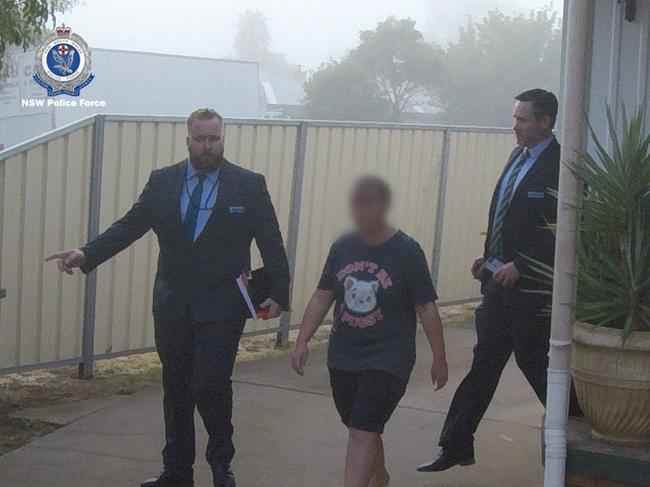Tracey Gould speaks about Strike Force Bato Dubbo drug bust
A woman whose panel beater husband doubled as a weed dealer has broken her silence in a grovelling letter of apology two years after her dramatic arrest.
Dubbo News
Don't miss out on the headlines from Dubbo News. Followed categories will be added to My News.
After two years of denying wrongdoing the disgraced wife of a Dubbo panel beater who doubled as a drug dealer has broken her silence in a letter of apology to a court.
Tracey Elizabeth Gould, 40, pleaded guilty to recklessly dealing with $20,450 her husband Adam Carnevale made from selling cannabis between September and December 2018.

Fortunately for the former nurse and cleaner, she was spared time behind bars when District Court Judge Nanette Williams sentenced her in Dubbo on Thursday.
Gould was arrested and charged in March 2019 along with Carnevale and multiple other men as part of a major police investigation into illegal drug supply, known as Strike Force Bato.
The couple’s home and business, Pro Fab Smash Repairs, were raided after a nine-month undercover police investigation.
Carnevale ran Pro Fab Smash Repairs and was convicted and jailed for supplying 56.5 kilograms of cannabis. He is believed to be out on parole after serving more than two years behind bars.
Caine Rootes was jailed and convicted for supplying 75.9kg of cannabis, largely to Carnevale, along with a small amount of cocaine to guests at a wedding. He becomes eligible for parole in October.
Grandpa pensioner Jeffrey Mears was the mule who transported cannabis from the Hunter to Dubbo, to Rootes who supplied it to Carnevale.
He was convicted of supplying 32.5kg of weed to Rootes and a small amount of cocaine.
Mears was released on parole in December.

Cassilis man Michael Paul Anderson spearheaded the drug dealing syndicate and supplied drugs to Rootes.
Anderson, a father of six, was convicted and jailed for five years. He becomes eligible for parole in October 2023.
According to court documents, Gould was caught handling Carnevale’s drug money seven times.
Phone taps led police to discover Gould spent the money on mortgage repayments, groceries, beer and rent for the workshop the couple ran their business out of.
Court documents state that on one occasion Carnevale was overheard talking with Gould about how much he sold ounces of cannabis to people for and how he had taken steps to ensure his DNA was not left on the bags he sold drugs in.

Often, Carnevale would use “beer” as a code word to describe cannabis and police heard him asking Gould to bring beer to the workshop.
During Gould’s sentencing Judge Williams read parts of a letter of apology out which Gould had tendered to the court.
In the letter Gould said she made a mistake and felt “ashamed and sorry”.
“I had reservations about the money, I just didn’t question it,” Gould said in the letter.
“I know I’ve done the wrong thing, it will never happen again. I feel so ashamed and sorry about what I’ve done.
“Now I’ve got my eyes wide open.”
Gould said after Carnevale and her were charged her “world fell apart”.
“People in town were awful to us,” she said.
Judge Williams told the court expert reports indicated Gould had struggled with depression and anxiety since she was a teen, but there was no link between her mental ill health and the crime.
“She’s had to deal with her husband’s incarceration, loss of her house, loss of her job, loss of income, loss of reputation in the community, being shunned and the significant mental health impacts.
“I don’t think Ms Gould could possibly say anymore times that she’s sorry for the offending.”

Gould was “genuinely remorseful and unlikely to reoffend”, however Judge Williams said the community needed to be reminded her behaviour was unacceptable.
“The community must be reminded that people who involve themselves in dealing recklessly with proceeds of crime … need to be denounced.
“There was a considerable sum of money dealt with.”
Judge Williams accepted Gould was working three jobs — as a cleaner, nurse and office worker at Carnevale’s shop — when she dealt with the drug money.
“Clearly, that very long and stable, strong work ethic is a serious factor which points to strong prospects of rehabilitation,” Judge Williams said.
“Moreover she has the support of her current employer.
“It’s easy to turn your back and shun people, it’s very hard to stand up for people when things are going tough.”
Gould was sentenced to a 12-month term of imprisonment to be served in the community in the form of an intensive corrections order.
Judge Williams also ordered Gould to do 75 hours of community service work and continue to seek help for depression and anxiety.




